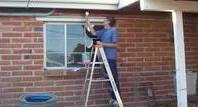How should your treat tenants? Treat tenants the way that you would like to be treated.
Think about it, at some point we have probably all been tenants. When I was a tenant, I wanted the landlord to respond to my problems around the house, I didn’t want rate increases, and I wanted to feel that the place that I was renting was my home.
Most tenants are just like you and I, and they deserve our utmost respect, especially over the holidays.
Here are my 4 key tips on how to keep good tenants
1. Practice good communication
The desires of most tenants are fairly common, and easy to identify. Good tenants don’t like noisy neighbors, appliances or other items in their rental property that don’t work, and frequent rent increases. Fortunately, good communication can take care of most of these problems.
One great pet peeve of tenants is when they have landlords who are as slow as snails to respond to their needs. Does it take you 2 hours to watch the television show “60 Minutes”? Then maybe you’re too slow.
If you are slow to respond to your tenant requests for help, you will be perceived as uncaring. The reason for this perception is because you don’t have good communications with your tenants.
Any time a tenant calls me, I will almost immediately return their call. Even though I work a regular 8:00 to 5:00 job, I can still manage my rental house business by having my cell phone with me everywhere I go. This way, I can deal quickly with tenant issues that may become exponentially worse (like a broken water pipe), if I waited to deal with it until I got home from work.
A phone call is good when you need to quickly get in contact with your tenant, but if it’s not an urgent matter, my preferred means of communication with tenants is by sending them memos by regular mail.
For example, if the tenant is not keeping up the yard work around their rental property, I will write them a note in a calm and respectful manner identifying the problem. I make a reference to the section of the contract that requires them to keep up the yard, and asking them to take care of it. A phone call could easily turn into a heated conversation, but with a memo, the tone stays calm and the point gets made. And, I have a written record of what I have told them that I keep in the tenants file folder.
I keep our tenants informed about activities that I have planned for their property. I will send a memo out and let them know well ahead of time if I plan to do some preventative maintenance, on the roof, for example. If a plumber cancels an appointment, I’ll call them so they are not waiting around all afternoon for no reason. It’s really just practicing common courtesy.
2. Timely responses to repair requests
I’ll admit that when I first became a landlord in 2002, this was a low priority on my list. I used to cringe when I’d answer the phone and a tenant would be on the line with a repair request. I knew I was going to have to spend some of my valuable time and hard-earned money to deal with a maintenance request. I would sometimes let the repair linger instead of jumping right on it.
Now, I look at it as an opportunity to show the tenants that I take their problems seriously, and I respond to their concerns immediately. I have a busy schedule, but my tenants have busy schedules too.
Keeping my good tenants happy is my highest priority because it directly affects my profits. The less turnover I have in my properties the more money I make.
What has helped me to respond quickly is that I have accumulated a list of good repair professionals over time. I have plumbers, an air conditioner company, handymen, and other professionals that I trust, on the speed dial of my cell phone, so that I can get them working on a repair without delay.
3. Rental fee Increases
I know that many landlords feel the need to regularly raise tenant rental fees. For obvious reasons, this can stir up the resentment of tenants and may cause them to think about looking for a new property.
I don’t have this problem because the only time I raise rents are when one tenant moves out and another one moves in. My philosophy is, why give the tenants any reason to look for another place to live?
In the case of rent increases for extremely long-term tenants, I think that tenants don’t mind paying a fair and competitive price, as long as it doesn’t seem like an exorbitant increase to them.
4. Warm Their Holiday with a Gift (card)
I may have said this before, but it bears repeating, remember your tenants during the holiday. The holidays are a great time to build the relationship that you have with your tenants. I have established a holiday tradition of buying my tenants a gift card from Target.
Don’t be a Grinch, at the very least, send a nice card.
For more information on giving gift cart for tenants see:A Holiday Tip for Keeping Good Tenants
Are You Big Enough to Pay it Forward?











